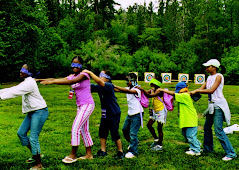10.13.2010
Life 'in the system': Long odds facing LA’s foster kids
Written on September 24, 2010 by Noelle Conti & Jonathan Serviss for KPCC
Trayvon Walker started his life addicted to cocaine. He was removed from his mother’s care as an infant and spent the rest of his adolescence growing up in the foster care system, riding a perpetual wave of instability. His experiences moving between schools throughout his teenage years demonstrate the kind of emotional whiplash and lack of stability foster kids endure.
"There should have been somebody there," says Trayvon who went to 10 different high schools in 4 years. "There was nobody there when I was going to all these different schools. I had repeated courses that I had already taken. That was the thing, I was actually completing courses and then when I went to a new school [it was], “We didn’t get your transcripts”. I had to retake a lot of these courses, I [had a lot of] frustration and anger at that point."
Los Angeles had over 22,000 children in the foster care system in 2008--the highest number of kids in foster care in the country, but a marked improvement from previous years. Kids in the system find themselves facing long odds at success: fewer than 4% of children in the foster care system nationwide graduate from a 4-year college. When foster youth get moved from home-to-home and school-to-school, their academic records often get lost in the shuffle. This can dash hopes of high school graduation and make the transition to college seem in surmountable.
Shimia Gray entered foster care at age 2. She was removed from the care of her drug addicted mother and went on to live in 10 different foster homes and 2 group homes. "Most of the foster homes I got put in, I was in bad situations," explained Shimia, talking about the tense and dangerous conditions that she endured. "In one of my foster homes, I was about five or six but we used to get beat on like really, really bad. When she knew the social worker would come, she wouldn’t hit us. Before the social worker came, when she knew they was coming, she’ll threaten us like don’t say this or I’m going to do this and then you aren’t going to tell on the foster parent."
Zaneta Bell, who entered care at the age two didn’t feel her social worker was looking out for her best interests. "I’ve had several of them and some of them just really don’t care. They are just there for the pay check and they are just doing whatever they got to do to get by and they really just don’t care about the foster youth."
Social workers in L.A. County are overworked and under-resourced. The Service Employees International Union Local 721, which represents most county social workers says that in the face of budget cuts, the caseloads of social workers is nearly double what’s recommended, about 30 cases per worker.
Lola Bell wonders what life might have been like if she had stayed with her drug-addicted mother. "I went through so much growing up in Foster care, all kinds of abuse from people that were complete strangers to me. And I mean I went through things that I would never have gone through, I know it wouldn’t be possible to go through, living with my mother."
Shimia Gray would like see some changes. "There needs to be more caring in the system I guess, people paying attention and really wanting to do it. I think it really would help because you wouldn’t have a lot of kids out here that’s in Foster care, most of them ending up homeless or going to jail or prostituting or doing anything that you know that they aren’t suppose to do and it all goes back to how you are raised or your mental state of mind."
As an organization, our vision is to create an experience that is all about love and caring for each moment that we can. We believe the same that Shimia Gray does. That, “there needs to be more caring in the system…people paying attention and really wanting to do it.” We want to be those people, which is why we are a volunteer organization. It is relationship changing for the children that we serve to know that the group of adults serving them are volunteers that chose to do so and are not seeking a paycheck. If you would like to help us fulfill our vision help us out by donating by using the PayPal button on the right.
If you would like to listen to the audio of this story, use the link below.
Subscribe to:
Post Comments (Atom)





No comments:
Post a Comment